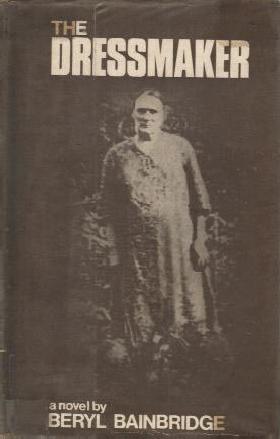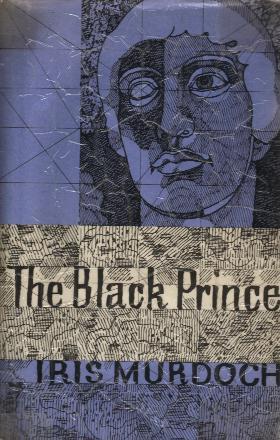
J.G. Farrell
The following novels constitute the shortlist for the 1973 Booker Prize:
Notable Omissions from the 1973 Shortlist

|
The Siege of Krishnapur J.G. Farrell |
Dustjacket synopsis:
"It is 1857. In Krishnapur, the British community continues its serene existence, complacently
ignoring the rumours of trouble among the native troops elsewhere in Hindustan. life is dull,
but the trappings of Civilization must be earnestly preserved. Only the Collector, Mr Hopkins,
senses danger.
"When the sepoys in the nearby cantonment rise in bloody revolt, the British retreat in shocked confusion to the Residency. Crowded behind makeshift barricades, surrounded by the Collector's varied momentoes of the Great Exhibition, they set themselves grimly to fight for their lives - and for their way of life - with every means at their disposal."
Quotes:
"A novel of quite outstanding quality" - The Times
"What a book. It has everything you could expect to find...characters, suspense, military
action, romantic attachments, satire, wit, tenderness, philosophy." - Mary McCarthy
"For a novel to be witty is one thing, to tell a good story is another, to be serious is yet
another, but to be all three is surely enough to make it a masterpiece." - New Statesman
First Paragraph:
Anyone who has never before visited Krishnapur, and who approaches from the east, is likely to think he has reached the end of his journey a few miles sooner than he expected. While still some distance from Krishnapur he begins to ascend a shallow ridge. From here he will see what appears to be a town in the heat distorted distance. He will see the white glitter of walls and roofs and a handsome grove of trees, perhaps even the dome of what might be a temple. Round about there will be the unending plain still, exactly as it has been for many miles back, a dreary ocean of bald earth, in the immensity of which an occasional field of sugar cane or mustard is utterly lost.
From the Flamingo paperback edition, 1988.

|
The Dressmaker Beryl Bainbridge |
Dustjacket synopsis:
"Nellie was used to taking responsibility for the family - she was a practical woman, a dressmaker to her bones. The
young G.I. just wasn't good enough for our Rita - Jack didn't think so, neither did Marge. Nobody asked him to interfere
with their lives, upsetting them all. 'Take him to Bootle,' said Nellie, 'that will be the best in the long run.' the
setting of this tense, compelling novel is Lancashire in 1944."
First Paragraph:
Afterwards she went through into the little front room, the tape measure still dangling about her neck, and allowed herself a glass of port. And in the dark she wiped at the surface of the polished sideboard with the edge of her flowered pinny in case the bottle had left a ring. She could hear Marge at the sink in the scullery, washing her hands. That tin bowl made a deafening noise. She nearly shouted for her to stop it, but instead she sat down on mother's old sofa, re-upholstered in L.M.S. material bought at a sale, and immediately, in spite of the desperate cold of the unused room, the Christmas drink went to her head. She had to bite on her lip to keep from smiling. The light from the hallway shone on the carpet, red and brown and good as new from all the years she had spent caring for it. Here at least everything was ordered, secure. The removal of the rosewood table had been a terrible mistake, but it was foolish to blame herself for what had happened. There was nothing mother could take umbrage at in the whole room - not even the little mirror bordered in green velvet with the red roses painted on the glass - because the crack across one corner, as she could prove, was war damage, not neglect or carelessness. The blast from a bomb dropped in Priory Road had knocked it off the wall, killing twelve people, including Mrs Eccles's fancy man at the corner shop, and cracked mother's mirror.
From the Duckworth hardback edition, 1973.
|
The Green Equinox Elizabeth Mavor |
I have not seen a copy of this book, and know nothing about it.

|
The Black Prince Iris Murdoch |
Dustjacket synopsis:
"The Black Prince is a story about being in love: it is also a study of an artist's inspiration, a love song to
Shakespeare, and many other things. It is certainly a very exciting tale.
"The hero and narrator, Bradley Pearson, is an elderly 'blocked writer' whose best friend, Arnold Baffin, a considerably younger man, is a deplorably successful producer of best-sellers. Jealously, fear, love, hate and misunderstanding bedevil this increasingly complex relationship. Bradley is encompassed by predatory friends and relatives: his long-vanished and now very rich ex-wife appears with maddening plans for a heart-warming reconciliation; his delinquent brother-in-law follows, hoping for a windfall or at least some interesting trouble; Arnold's wife nourishes an emotional attachment to him; Arnold's teenage daughter wants him to teach her to be a writer ... Bradley cannot stand it any longer; he attempts to run away but finds himself the captive of an ambiguous power beyond his control ... And so a very intellectual thriller moves to its violent climax.
"This is a remarkable novel, compelling both as a story with a marvellously involuted plot and as a meditation on the nature of art, of love, and of the power of human relationships."
First Paragraph:
Although several years have now passed since the events recorded in this fable, I shall in telling it adopt the modern technique of narration, allowing the narrating consciousness to pass like a light along its series of present moments, aware of the past, unaware of what is to come. I shall, that is, inhabit my past self and, for the ordinary purposes of story-telling, speak only with the apprehensions of that time, a time in many ways so different from the present. So for example I shall say, 'I am fifty-eight years old', as I then was. And I shall judge people, inadequately, perhaps even unjustly, as I then judged them, and not in the light of any later wisdom. That wisdom however, as I trust that I truly think it to be, will not be absent from the story. It will to some extent, in fact it must, 'irradiate' it. A work of art is as good as its creator. It cannot be more so. Nor, such as he in this case is, can it be less. The virtues have secret names: they are, so difficult of access, meat things. Everything that is worthy is secret. I will not attempt to describe or name that which I have learnt within the disciplined simplicity of my life as it has latterly been lived. I hope that I am a wiser and more charitable man now than I was then - I am certainly a happier man - and that the light of wisdom falling upon a fool can reveal, together with folly, the austere outline of truth. I have already by implication described this 'reportage' as a work of art. I do not of course by this mean a work of fantasy. All art deals with the absurd and aims at the simple. Good art speaks truth, indeed is truth, perhaps the only truth. I have endeavoured in what follows to be wisely artful and artfully wise, and to tell truth as I understand it, not only concerning the superficial and 'exciting' aspects of this drama, but also concerning what lies deeper.
From the Chatto & Windus hardback edition, 1973.
This page and its contents are copyright © 2002 by Perry Middlemiss, Melbourne, Victoria, Australia.
Last modified: March 28, 2002.